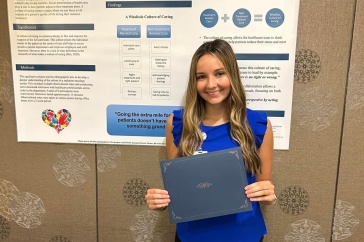
Cindy Wolz, a clinical associate professor of nursing
The 10-bed crisis unit at New Hampshire’s only psychiatric hospital was ready to accept patients last July but there weren’t enough nurses to staff it so the opening was delayed a year.
When the Vermont Psychiatric Care Hospital opened in 2014, there were people waiting for treatment but the hospital couldn’t fill all the beds because of a shortage in specialized nurses.
“Addiction comes out of anxiety and depression and can lead people to self-medicate. Prevention is key and nurse practitioners play a big role in prevention and treatment.”
That kind of need is the target of the psychiatric mental health nurse practitioner program being launched at UNH in January. Program director Cindy Wolz, a clinical associate professor of nursing, says the new certificate program is a way to increase access to mental health services in communities.
“There has been a significant shortage for a number of years. The current challenge with addiction also has brought the need to light,” Wolz says. “Addiction comes out of anxiety and depression and can lead people to self-medicate. Prevention is key and nurse practitioners play a big role in prevention and treatment.”
Geared toward the family nurse practitioner with a master’s degree and one year of clinical practice experience, the curriculum will prepare students “across the lifespan,” Wolz says, meaning they will be trained to work with children through the elderly and choose their area of focus.
Students can complete the certificate requirements in one calendar year; the program consists of two full semesters and a summer semester. Two of the courses will be taught online. The GRE and MAT are not required.
The program is designed to refine the clinical skills of a family nurse practitioner toward managing patients with mental health issues, including the advanced psychiatric skills of therapy, prescribing psychiatric medications and clinical management needed to treat patients with mental illness and chronic medical conditions.
“The mental health aspect is a nice complement to any medical setting — community health centers, private practice, university health centers, hospitals. The opportunities are unlimited,” Wolz says.
















































